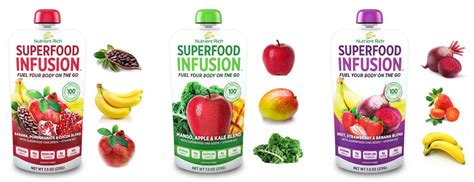How to optimize testosterone naturally for sustained male vitality & performance?

Testosterone, the primary male sex hormone, plays a pivotal role in more than just libido. It influences muscle mass, bone density, mood, energy levels, and overall vitality. While testosterone levels naturally decline with age, many men experience suboptimal levels earlier due to modern lifestyle factors. Fortunately, there’s a wealth of natural strategies that can help optimize testosterone production, leading to sustained male vitality and peak performance without resorting to synthetic interventions.
The Far-Reaching Impact of Testosterone
Understanding the multifaceted functions of testosterone is the first step toward appreciating the importance of maintaining healthy levels. Beyond sexual function, adequate testosterone contributes to maintaining lean muscle mass, reducing body fat, supporting bone health, improving cognitive function, and fostering a positive mood. Low testosterone can manifest as fatigue, reduced libido, difficulty building muscle, increased body fat, and even mood disturbances. Opting for natural optimization methods focuses on supporting the body’s intrinsic ability to produce this vital hormone, promoting long-term health rather than just symptomatic relief.

Foundational Lifestyle Pillars for Testosterone Support
Optimizing testosterone naturally requires a holistic approach, with several lifestyle factors forming the cornerstone of this strategy. These pillars work synergistically to create an environment conducive to optimal hormone production.
Nourish Your Body with the Right Diet
Your diet is perhaps one of the most impactful levers for hormone regulation. Prioritize whole, unprocessed foods. Ensure adequate intake of healthy fats, such as those found in avocados, nuts, seeds, and olive oil, as cholesterol is a precursor to testosterone. Micronutrients like zinc (oysters, beef, pumpkin seeds) and Vitamin D (fatty fish, fortified foods, sunlight) are also crucial. Avoid excessive sugar, refined carbohydrates, and unhealthy trans fats, which can negatively impact hormone balance.

Embrace Strategic Exercise
Regular physical activity, particularly strength training and high-intensity interval training (HIIT), has been shown to boost testosterone levels. Focus on compound movements (squats, deadlifts, bench presses) that engage multiple muscle groups. However, avoid chronic overtraining, which can lead to increased cortisol (a stress hormone) and subsequently suppress testosterone. Aim for 3-5 challenging workouts per week, allowing for adequate recovery.

Prioritize Restorative Sleep
Sleep deprivation is a silent culprit in testosterone decline. Most of your daily testosterone production occurs during sleep, particularly during REM cycles. Aim for 7-9 hours of high-quality, uninterrupted sleep each night. Establish a consistent sleep schedule, create a dark, cool, and quiet bedroom environment, and limit screen time before bed to optimize your sleep hygiene.
Master Stress Management
Chronic stress elevates cortisol levels, which has an inverse relationship with testosterone. When cortisol is high, testosterone tends to be low. Incorporate stress-reducing practices into your daily routine, such as meditation, deep breathing exercises, yoga, spending time in nature, or engaging in hobbies you enjoy. Effectively managing stress is crucial for maintaining hormonal equilibrium.

Beyond the Basics: Targeted Nutritional Support
While a balanced diet is fundamental, certain vitamins, minerals, and natural compounds can offer additional support for testosterone production.
- Vitamin D: Often referred to as a pro-hormone, Vitamin D plays a direct role in testosterone synthesis. Ensure adequate sun exposure or consider supplementation, especially if you live in northern latitudes.
- Zinc: This essential mineral is vital for numerous bodily functions, including hormone production. Zinc deficiency is directly linked to low testosterone.
- Magnesium: Involved in over 300 enzymatic reactions, magnesium can help increase free and total testosterone levels, particularly in active individuals.
- Adaptogenic Herbs: Certain herbs like Ashwagandha and Fenugreek have been traditionally used and scientifically studied for their potential to support testosterone levels and reduce stress. Always consult a healthcare professional before starting any new supplement regimen.
Minimize Endocrine Disruptors and Optimize Environment
Our modern environment is rife with chemicals that can mimic or interfere with hormones. Minimize exposure to endocrine-disrupting chemicals found in plastics (BPA, phthalates), pesticides, and certain personal care products. Opt for glass or stainless steel containers, choose organic produce when possible, and read labels carefully. Maintaining a healthy body weight is also critical, as excess body fat, particularly visceral fat, can increase the conversion of testosterone to estrogen through an enzyme called aromatase.
The Path to Sustained Vitality
Optimizing testosterone naturally is not about quick fixes but about cultivating sustainable lifestyle habits. It’s a journey that emphasizes patience, consistency, and a holistic understanding of your body’s needs. By consistently integrating smart dietary choices, strategic exercise, restorative sleep, effective stress management, and targeted nutritional support, you can empower your body to produce testosterone optimally. This comprehensive approach not only supports healthy testosterone levels but also enhances overall health, energy, mood, and performance, paving the way for sustained male vitality well into the future.










